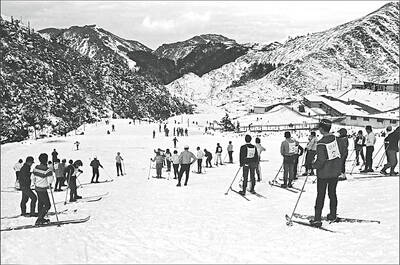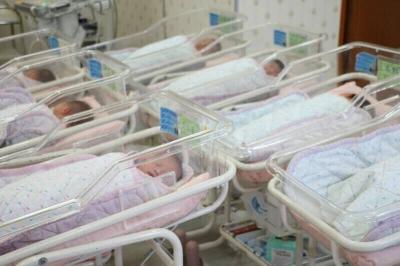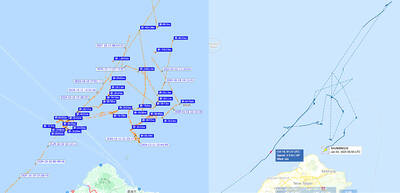Staff reporter
During the final presidential debate on Sunday the two candidates focused on personal attacks rather than explaining their policies, making it unlikely that either would have expanded their support base or attracted swing voters, analysts said.
National Sun Yat-sen University political science professor Liao Da-chi (廖達琪) said Democratic Progressive Party (DPP) presidential candidate Frank Hsieh (謝長廷) criticized Chinese Nationalist Party (KMT) rival Ma Ying-jeou (馬英九) over his moral character and "cross-strait common market" policy but failed to explain his own manifesto, including his "happiness economy" and "reconciliation and coexistence" policies.
Although Hsieh's fierce challenges created an opportunity for Ma to defend and promote his policies, Ma still failed to present a clear explanation of his policies, especially the complicated "cross-strait common market" concept, Liao said.
Hsieh lambasted Ma's economic policies and proposed putting the "cross-strait common market" to the public in a referendum during the debate and in his closing remarks, urged voters who support the common market to vote for Ma and voters that oppose it to vote for him.
Ma, while being mostly on the defensive, focused his attacks on the performance of the DPP administration over the past eight years, hoping to connect Hsieh with the failures, as he sees them, of President Chen Shui-bian's (陳水扁) administration.
Shih Cheng-feng (
"Hsieh is smarter than President Chen. Rather than discussing the Taiwan sovereignty issue directly, he wrapped the issue in the common market concept. It's a brilliant strategy," Shih said.
However, neither candidate presented any new policies and turned the debate into a dull defensive battle in order to consolidate their support bases, Shih said.
Comparing the different formats of the debates, Shih described the questions asked during the first debate on Feb. 24 as "out of focus" and "shallow." Shih criticized the organizers for holding the second debate two weeks prior to the election, giving voters little chance to gain a deeper understanding of candidates' policies.
During the first debate, the two candidates were asked 20 videotaped questions from voters who were also given the opportunity to attend and question both candidates directly. Each candidate was given one minute to answer each question.
Sunday's debate returned to a more traditional format, inviting managers from five major media outlets to ask 10 questions, with the candidates given three minutes to answer each question.
Political analyst Wang Kung-yi (王崑義), a professor at National Taiwan Ocean University, said the questions, ranging from constitutional reform, economic policy to national defense, were more familiar issues for the candidates than the issues addressed in the first debate, such as environmental protection.
"It was good to see the candidates focus more on economic policy than on national identity and sovereignty," Wang said.
More focus on the economy rather than on national identity would lead the nation toward "normalization," he said.
Liao agreed that the questions on Sunday gave the candidates the opportunity to elaborate more on their policies, but added that the first debate had been an innovative attempt at "civil" politics.
"The questions raised by the public, although diverse, concerned our daily lives and should not be overlooked," she said.
Liao said she was concerned about the lack of female representation from the media and the lack of questions concerning women's and minority issues asked during the debate.
Wang Tai-li (王泰俐), a journalism professor at National Chengchi University, suggested the government should learn from the US and set up a commission to organize presidential debates.
In addition to encouraging representatives from minority groups to participate, Wang also called on the organizers to redesign the debate format and allow the candidates to ask follow-up questions.
The presidential debates were co-organized by the Central News Agency, the Liberty Times (the Taipei Times' sister newspaper), the China Times, the United Daily News, the Apple Daily and Public Television Service (PTS).
Shih suggested that the organizers hold more debates during the next election, each focusing on a separate issue, such as foreign policy and the economy.

DEEPER REVIEW: After receiving 19 hospital reports of suspected food poisoning, the Taipei Department of Health applied for an epidemiological investigation A buffet restaurant in Taipei’s Xinyi District (信義) is to be fined NT$3 million (US$91,233) after it remained opened despite an order to suspend operations following reports that 32 people had been treated for suspected food poisoning, the Taipei Department of Health said yesterday. The health department said it on Tuesday received reports from hospitals of people who had suspected food poisoning symptoms, including nausea, vomiting, stomach pain and diarrhea, after they ate at an INPARADISE (饗饗) branch in Breeze Xinyi on Sunday and Monday. As more than six people who ate at the restaurant sought medical treatment, the department ordered the

A strong continental cold air mass and abundant moisture bringing snow to mountains 3,000m and higher over the past few days are a reminder that more than 60 years ago Taiwan had an outdoor ski resort that gradually disappeared in part due to climate change. On Oct. 24, 2021, the National Development Council posted a series of photographs on Facebook recounting the days when Taiwan had a ski resort on Hehuanshan (合歡山) in Nantou County. More than 60 years ago, when developing a branch of the Central Cross-Island Highway, the government discovered that Hehuanshan, with an elevation of more than 3,100m,

Taiwan’s population last year shrank further and births continued to decline to a yearly low, the Ministry of the Interior announced today. The ministry published the 2024 population demographics statistics, highlighting record lows in births and bringing attention to Taiwan’s aging population. The nation’s population last year stood at 23,400,220, a decrease of 20,222 individuals compared to 2023. Last year, there were 134,856 births, representing a crude birth rate of 5.76 per 1,000 people, a slight decline from 2023’s 135,571 births and 5.81 crude birth rate. This decrease of 715 births resulted in a new record low per the ministry’s data. Since 2016, which saw

SECURITY: To protect the nation’s Internet cables, the navy should use buoys marking waters within 50m of them as a restricted zone, a former navy squadron commander said A Chinese cargo ship repeatedly intruded into Taiwan’s contiguous and sovereign waters for three months before allegedly damaging an undersea Internet cable off Kaohsiung, a Liberty Times (sister paper of the Taipei Times) investigation revealed. Using publicly available information, the Liberty Times was able to reconstruct the Shunxing-39’s movements near Taiwan since Double Ten National Day last year. Taiwanese officials did not respond to the freighter’s intrusions until Friday last week, when the ship, registered in Cameroon and Tanzania, turned off its automatic identification system shortly before damage was inflicted to a key cable linking Taiwan to the rest of